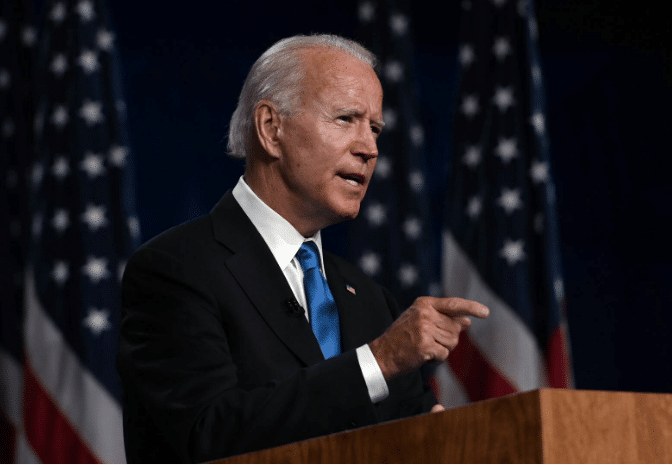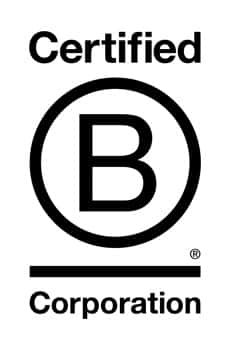By Zubin Segal and Nancy Edwards
The light at the end of the seemingly endless 2020 tunnel waxes and wanes with each day’s news, but we at CPMG are cautiously optimistic about 2021. With a vaccine now on its way and a new administration that believes in science poised to take back the White House, things are starting to look up.
As the new year dawns, we have a renewed sense of the kind of world we want to create: one that’s more equitable, just and environmentally sustainable. Climate change will be an essential part of the conversation. For this reason, and many others, we are “climate optimistic” about 2021. Here are six reasons why:
#1. As we recover from the pandemic, Climate Change will take center stage.

The President-elect has already stated that one of his first actions will be to undo the environmental damage done by the previous administration. He has reiterated his pledge to rejoin the Paris agreement on day one and has outlined his plan for carbon-free electricity generation by 2035 and net-zero carbon emissions in the U.S. by 2050. These actions will have multi-faceted and far-reaching benefits for the global economy, for the renewable energy industry, and for the ongoing innovation in clean energy products and services.
Why we think so: Remember when climate change was just another hoax? (Granted, some have not abandoned this belief.) The media have evolved how they cover the issue, in part because of collaborative efforts to increase both the quality and tenor of climate coverage. Even before 2020, coverage of climate change was increasing among mainstream media, and it appears to have made an impact: 72% of American adults now believe climate change is happening, and 80% of those 18-29 consider it a major threat.
#2. Diversity will finally start to change the face of the renewable energy industry — and the newer category of climate solutions.
Climate events have proven to be more severe in poorer areas and to disproportionately affect women and people of color. These populations are also underrepresented in the renewable energy industry. In 2021, we will see more projects like massive community solar farms that are owned by the communities they serve and policy reforms that increase protection of and equitable access to clean energy, water and air.
Why we think so: Already there is a significant push from the renewable energy sector to provide training and workforce development to underrepresented groups. The Solar Energy Industries Association has launched a #DiversityChallenge to encourage energy companies to make diversity and inclusion a core part of their culture. Here in Austin, groups like Solar Austin work at the nexus of the private, public and nonprofit sectors to provide opportunities to up-and-coming energy professionals from minority backgrounds.
#3: Climate Activists will become Climate Champions.

Remember Greta Thunberg (how could we forget?)? This year will see hundreds, if not thousands more Gretas – young, informed, mobilized climate activists. These climate crusaders will make their intentions known with their voices — real and digital. Their slightly older Gen Z partners in environmental angst will use their growing buying power to support companies that are genuinely committed to reducing their carbon footprint and sustainable sourcing and manufacturing. To this generation, how products are made is as important as the products themselves.
Why we think so: If 2020 taught us one thing, it is that we know how to mobilize when the issue is important enough. Trending topics like #climatechange #climateaction #saveourplanet soared in 2020. In the same way that Colin Kaepernick became the face of social justice for the US, others with the same passion and a loud enough voice will become champions of climate change. The question is: Who will take a knee for the planet?
#4. Carbon metrics will have more meaning as more companies adopt sustainable business practices.
The new year will see metrics and measurements related to climate change in a whole new light. Seemingly complex concepts such as “carbon credits,” “carbon offsets” and “circular economy” will gain more traction as companies expand their commitments to sustainable business practices. Relatedly, the countless number of certifications/milestones/awards we see in the green space will give way to 4-5 measurement frameworks that cover the environmental, social, and even cultural impacts (both positive and negative) of business practices.

Our top picks for sustainability certifications: B Corp, 100RE, and the CDP A List will be the key certifications to watch as they require true accountability. As ESG investing continues its meteoric rise, we will see a greater insistence on transparency and consistency across all standards.
Why we think so: More companies are committing to sustainability and ESG and are eager for a consistent metric system to lend credibility to their efforts. (Just search the term “sustainability” with your favorite company or product. Or look at the back of a shampoo bottle, breakfast cereal, or bottle of wine.) Everyone wants to be sustainable. The challenge will be proving it.
#5: Companies will proudly assert Climate Missions, and their actions will follow suit.
More than ever in 2021, consumers will demand (not request) transparency and accountability of a company’s environmental impact. To meet these demands, companies will adopt a Climate Mission or better yet, a Climate Pledge, that clearly defines its commitment to environmentally sound business practices.
Business leaders and climate activists will sit at the same table as lawmakers to draft and execute climate change legislation that will collectively benefit the economy, the environment, and its citizenry. Furthermore, with activated citizens as climate watchdogs, there will be accountability for the stakeholders.
Why we think so: Leading companies like Amazon, Microsoft, Best Buy, and scores of others have become keenly aware of their role in climate change, not only because of the scale of their emissions but because they have the most influence and funds to make significant changes. And while a Climate Pledge may have great optics for a company, at the end of the day, having a broader ESG plan that’s good for the company’s bottom line is even better.
#6. Energy storage solutions will find their place as solar outpaces itself.
We would be remiss if we didn’t make a prediction about the technology innovations driving the energy transition. The renewable energy industry has been remarkably steady during the pandemic, and as the vaccine rolls out installers and EPCs will be able to return to normal operations. If advocacy efforts pay off, the recovery will be buttressed by an extension of the ITC. However, while solar and wind will return to their former glory, energy storage will truly be the star of the show in 2021.
Once nascent storage technologies will be established as mainstream and marketable in 2021. Our sights are on hydrogen storage (predicted to be an $11 Trillion industry by 2050) which will be integral to the EV movement, as hydrogen fuel cells will be more competitive with lithium ion and less harmful to the environment. Microgrids will also move into the mainstream as “Energy as a Service” becomes the norm during peak demand times. You can have anything delivered on demand now, why not have on demand energy delivery as well (be sure to tip your, um, utility?).
Why we think so: Solar installations have made an astounding rebound, with a 43% increase over last year, just below pre-pandemic forecasts. Reporting by renewable energy research agencies and business outlets throughout 2020 consistently point to the growth of storage technology as well as its improved streamlined deployment.
And in conclusion, we make a climate optimism pledge. Will you?
We hope that our predictions in 2021 come to fruition, and we can ourselves be considered “Climate Optimists.” That doesn’t mean there aren’t challenges ahead. There’s still an ITC extension to win, a solar net metering 3.0 challenge in California, and a heap of environmental rollbacks to reverse. But if we made it through 2020, we can make it through anything.
So this is our pledge: To be climate optimists in 2021. For us, this means rolling up our sleeves to fight for a more just, equitable and ever more sustainable world.
What’s yours?



